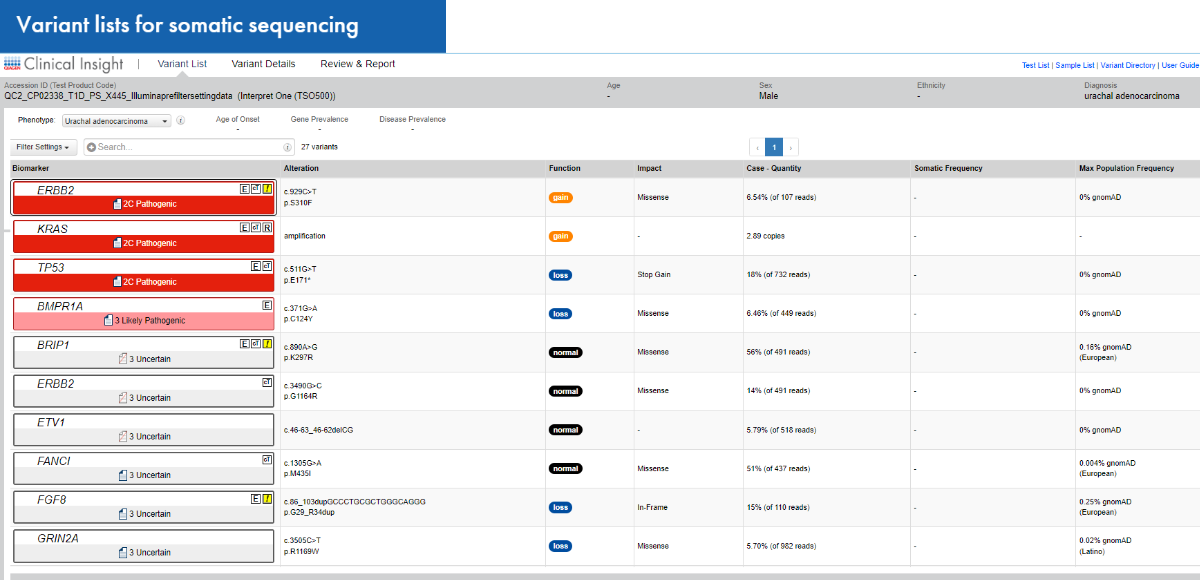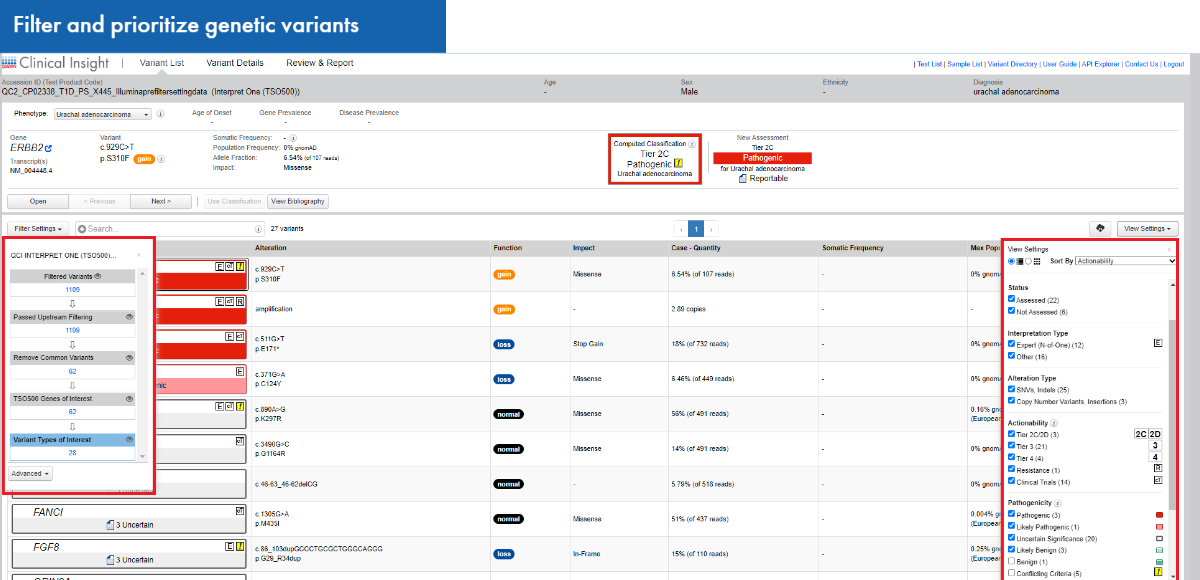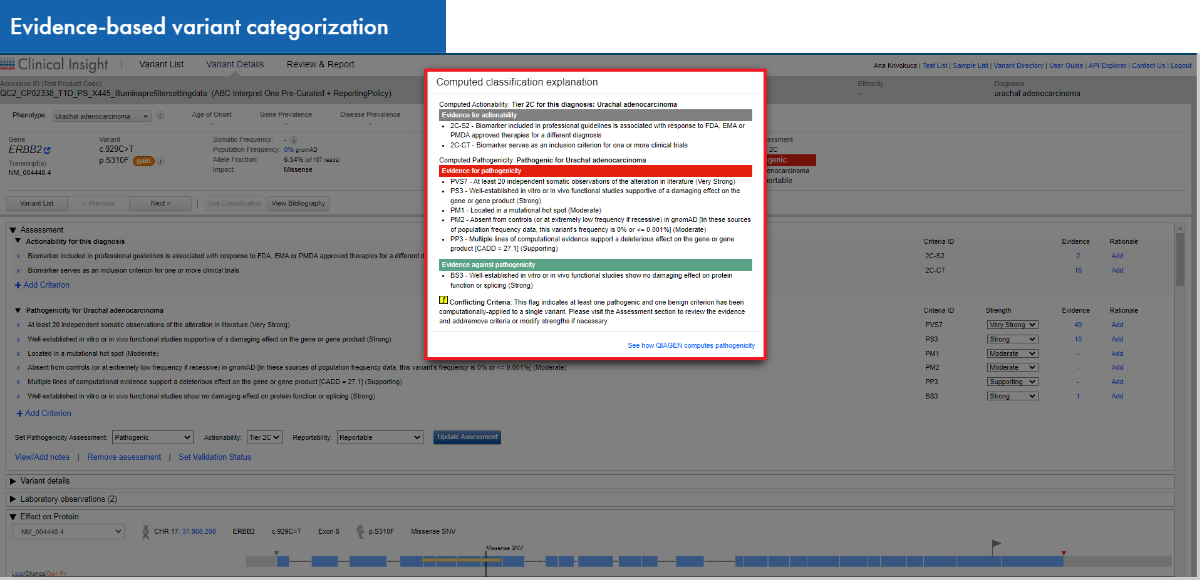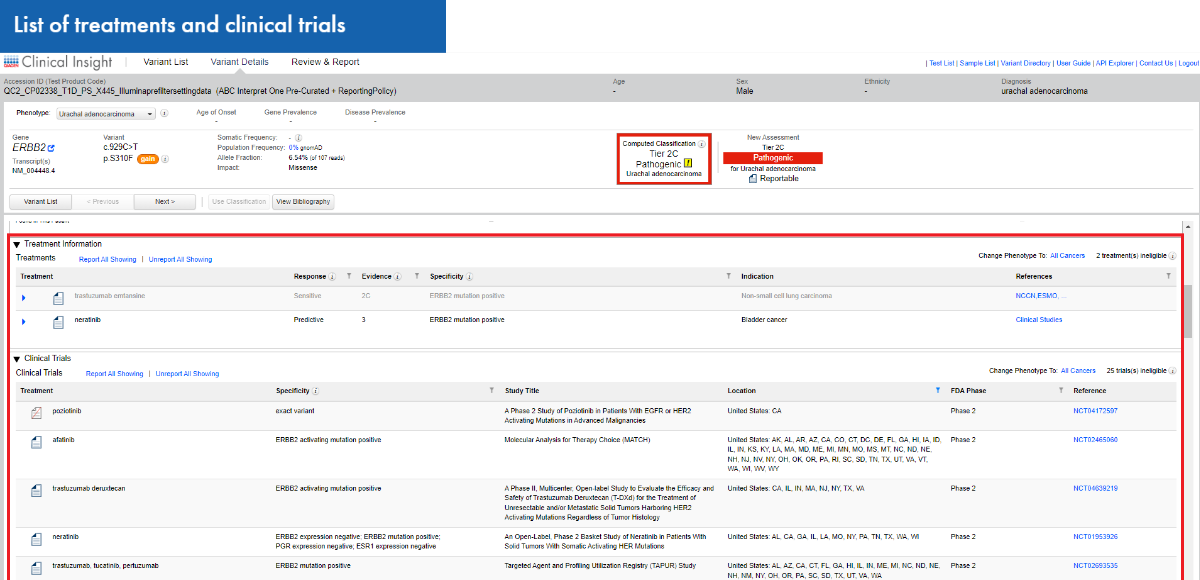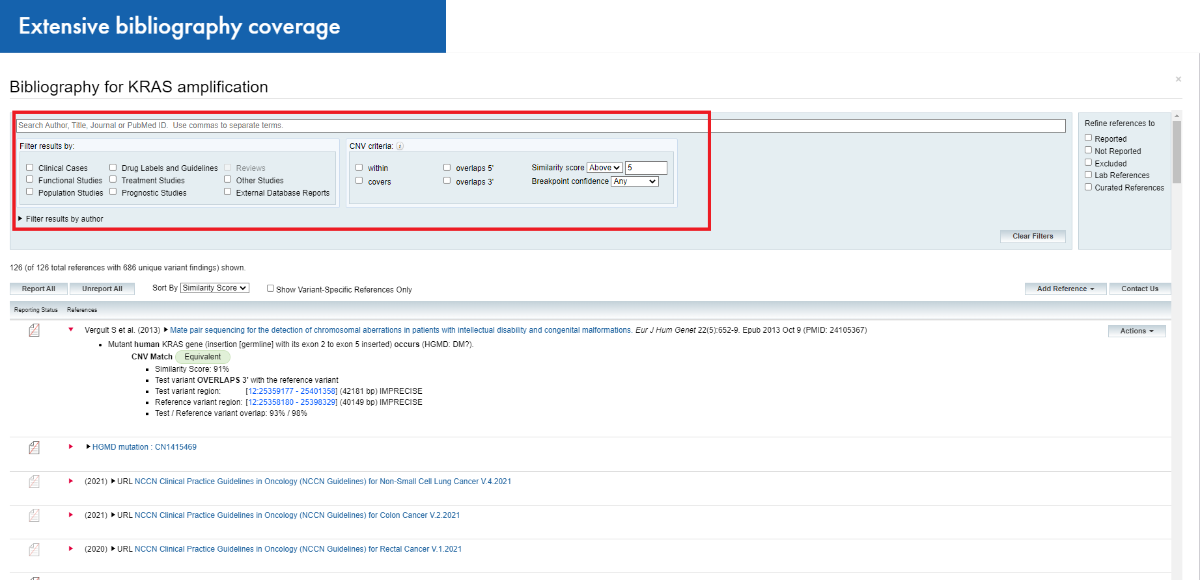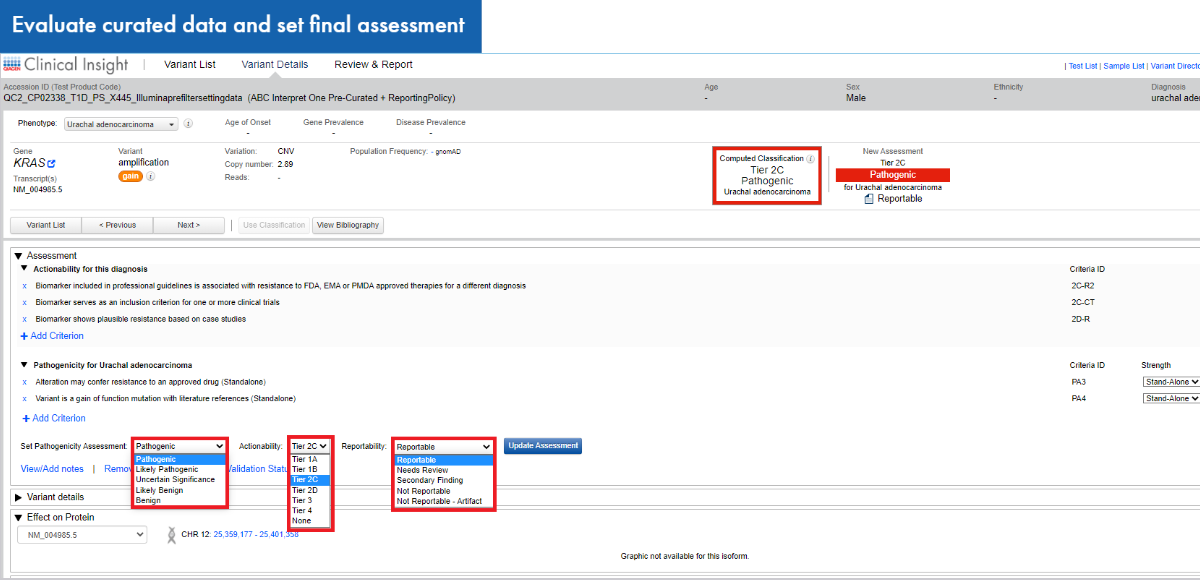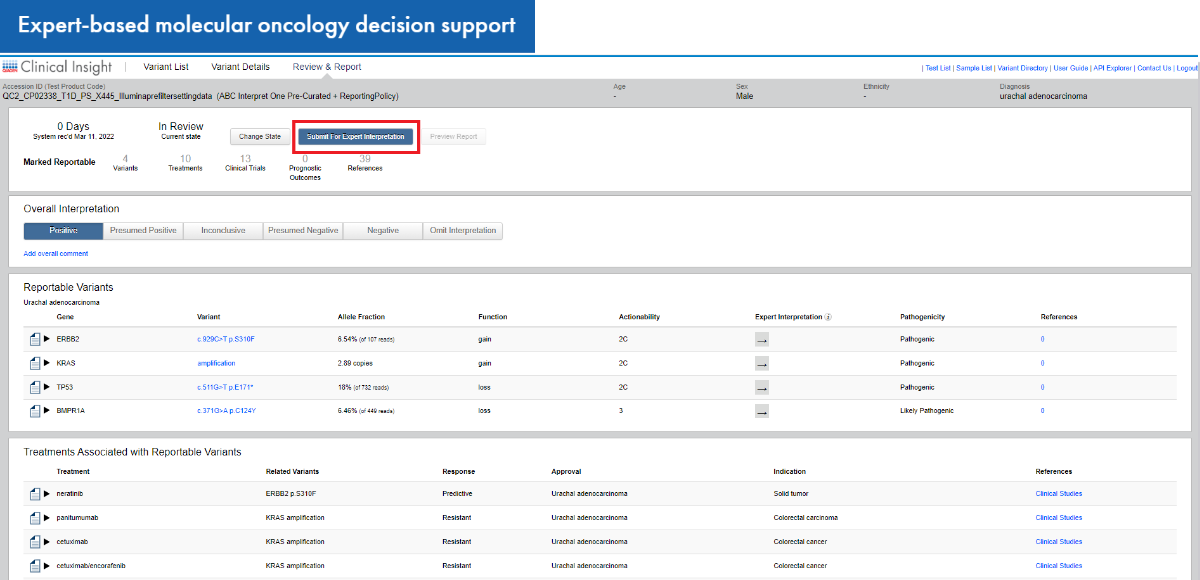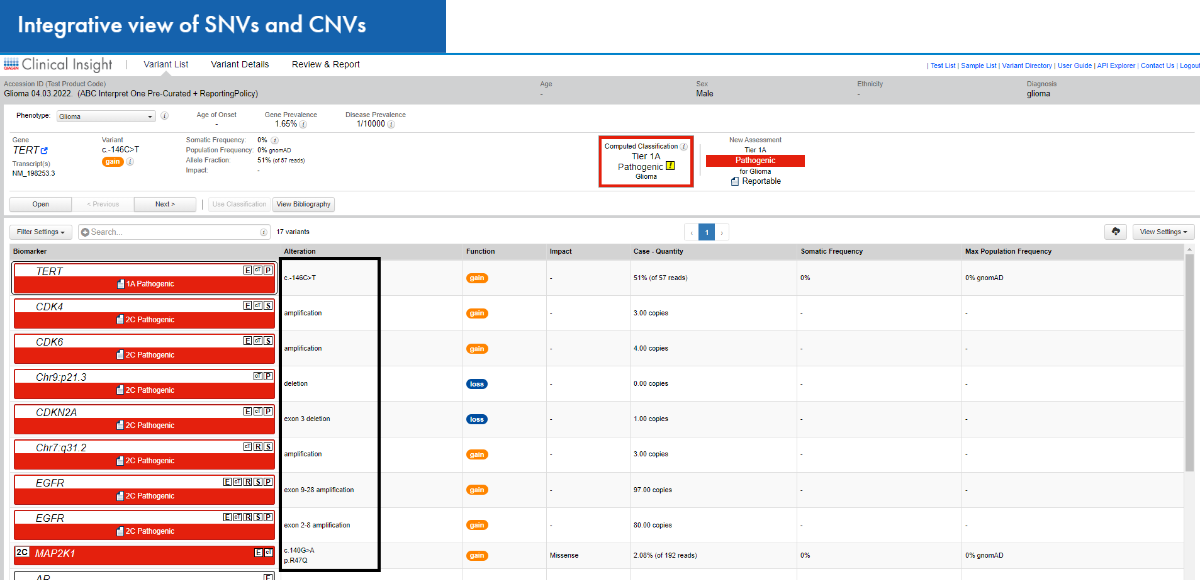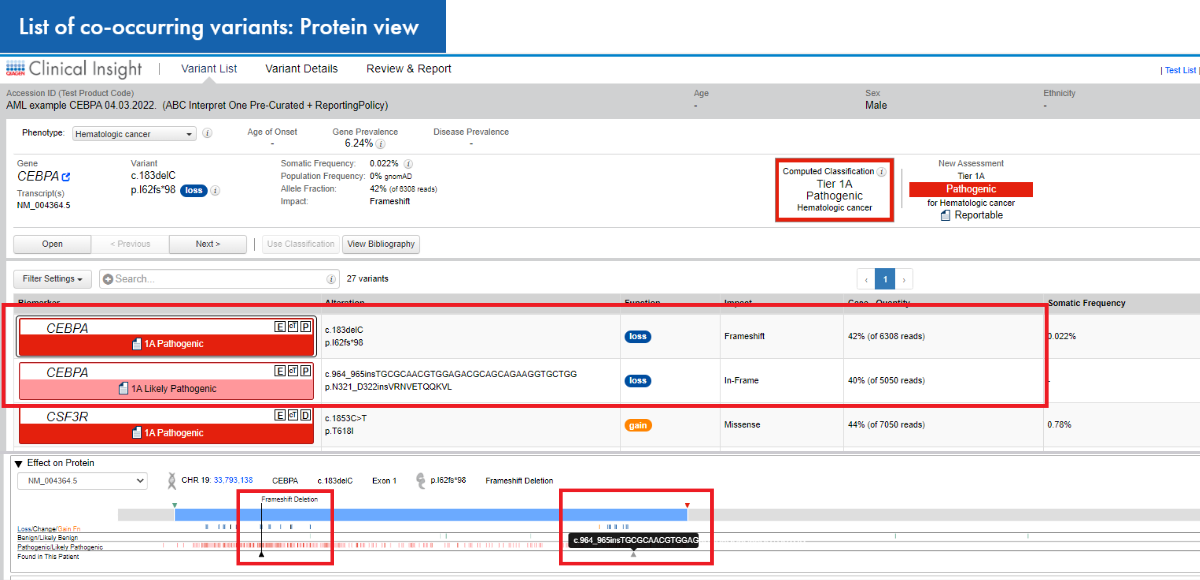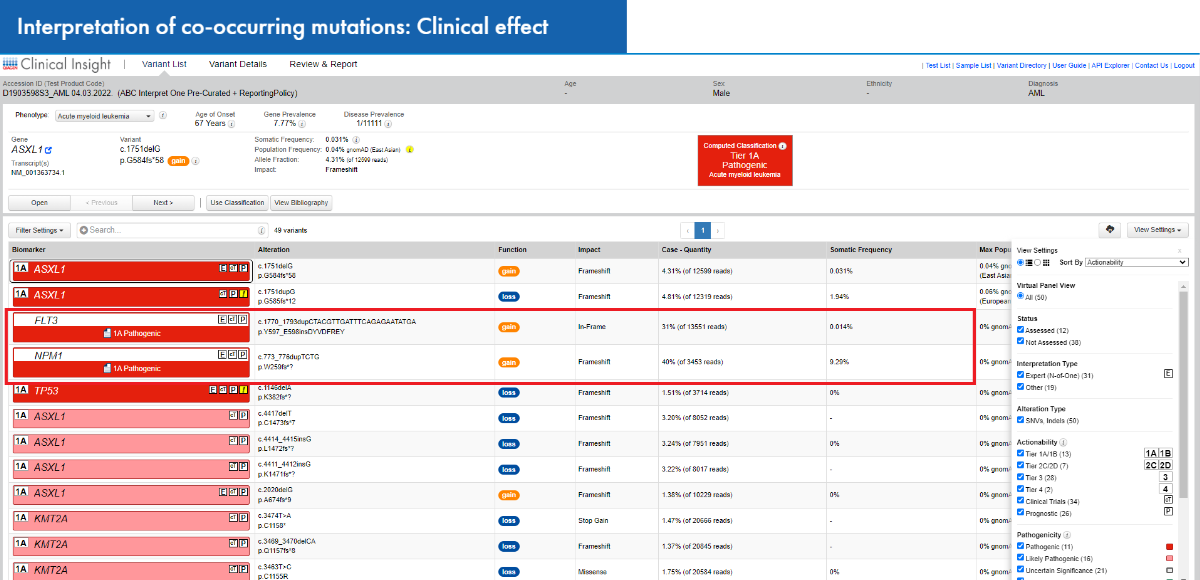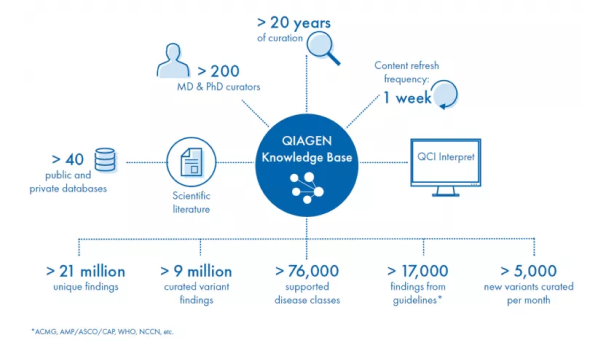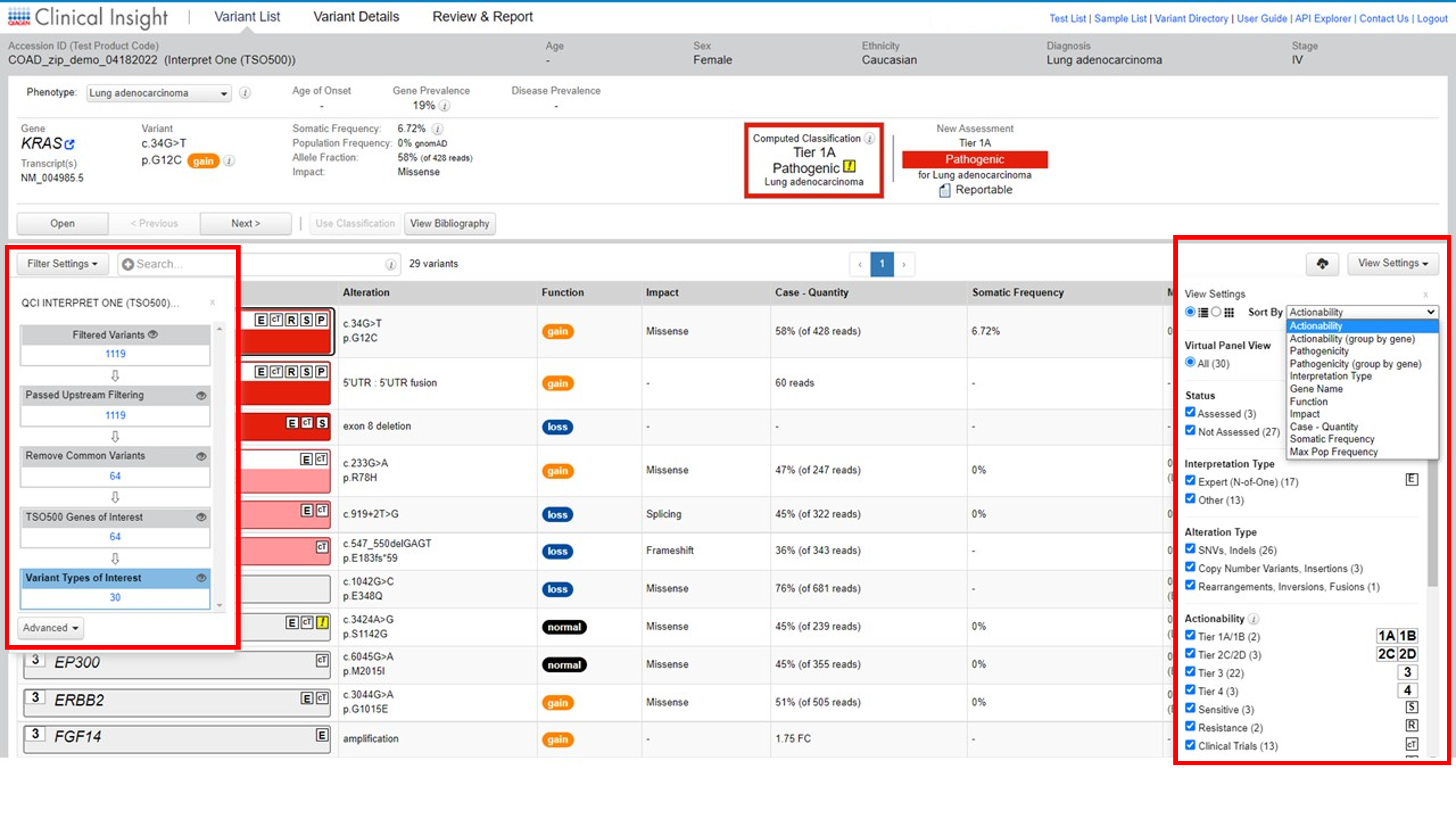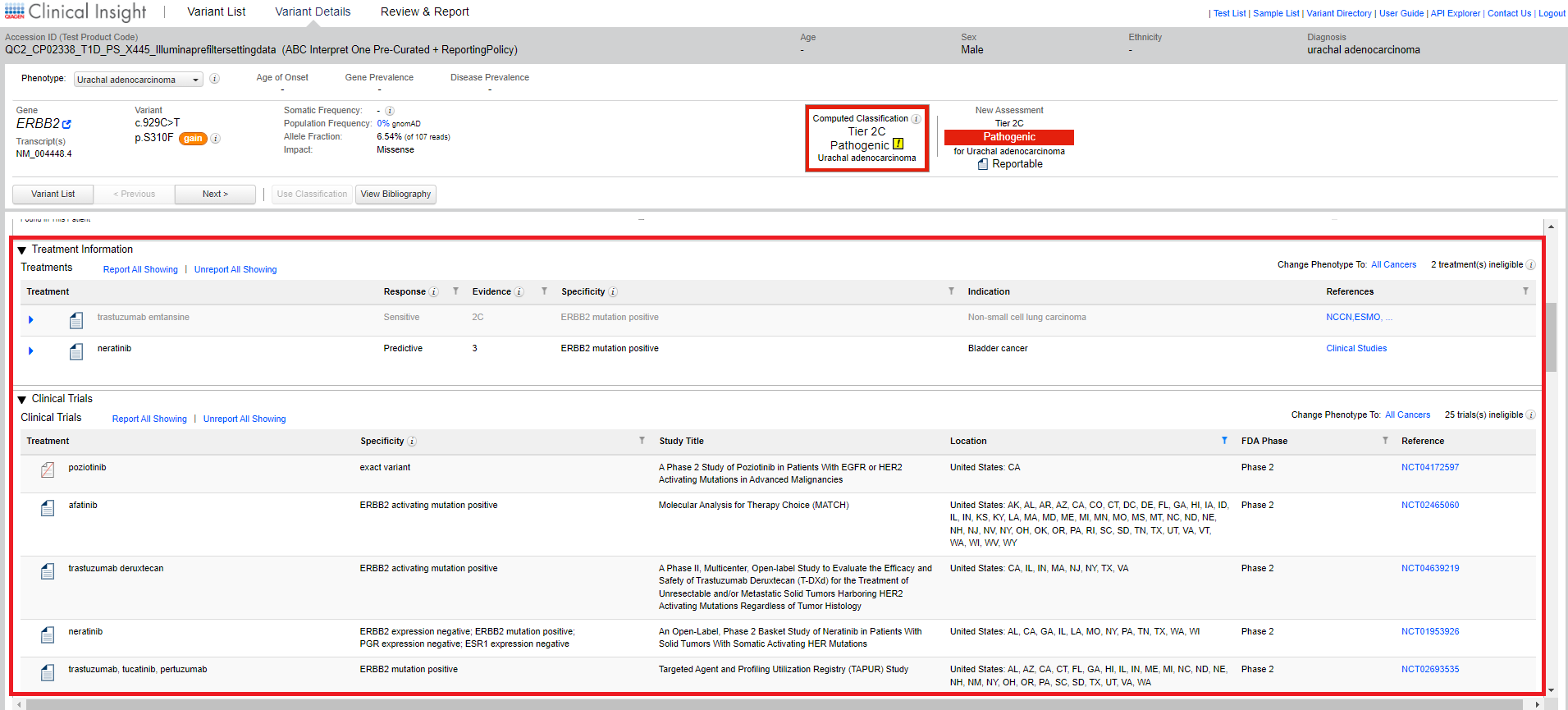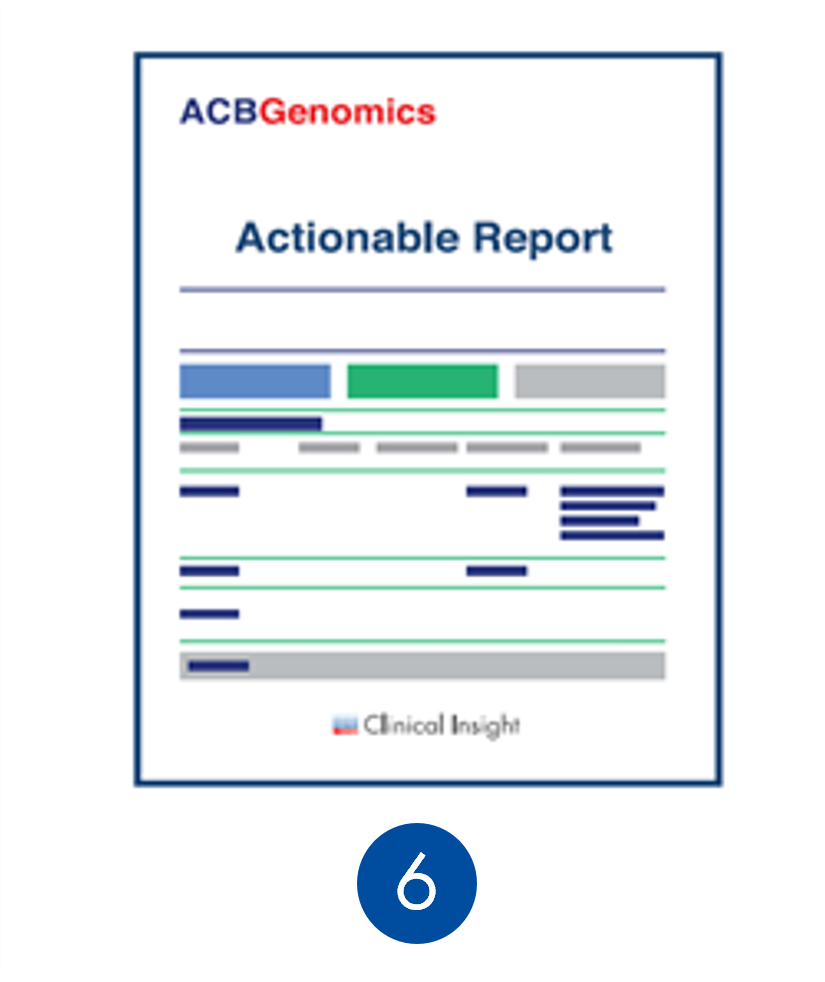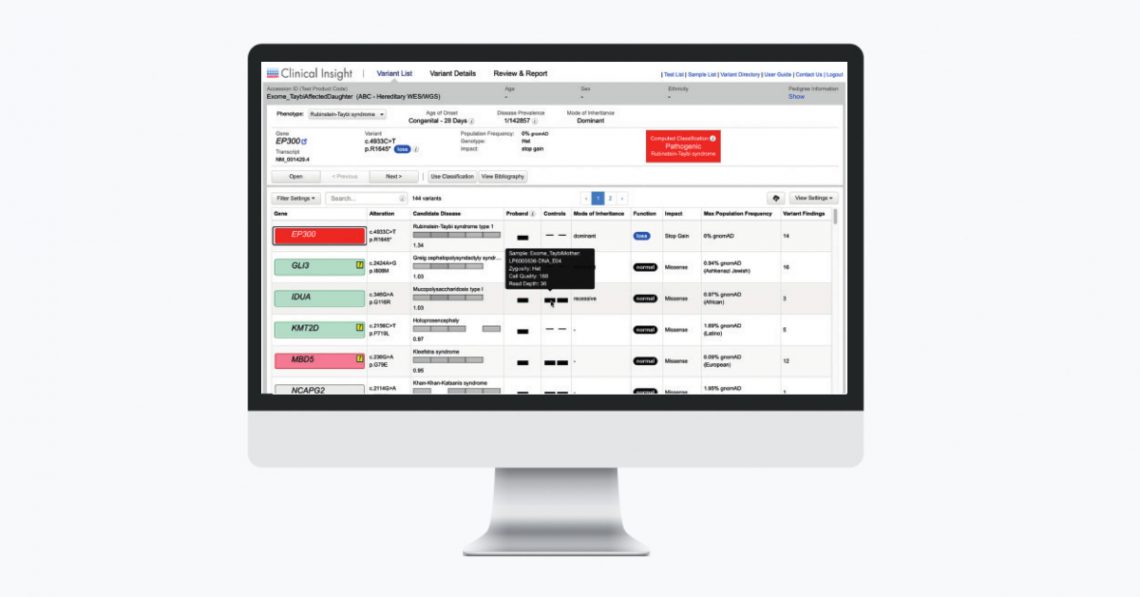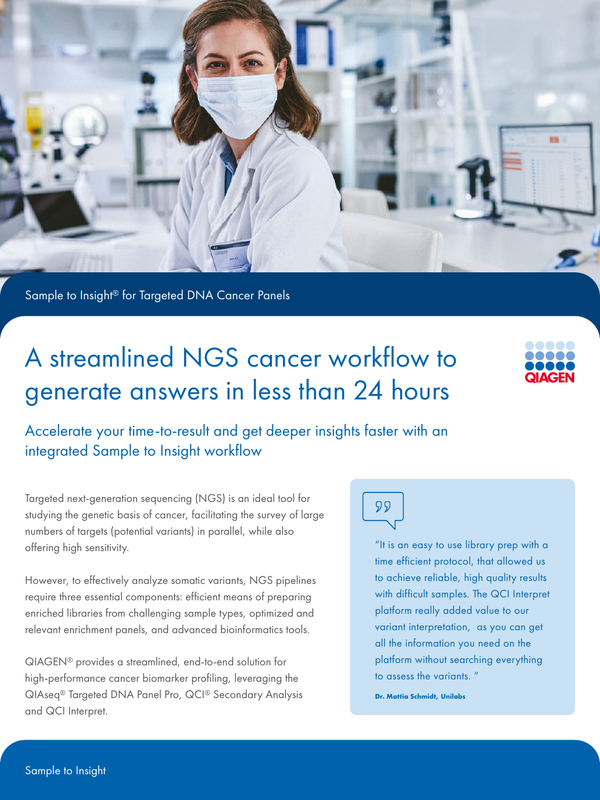
Variant Interpretation with QCI Interpret
Skip the diagnostic odyssey and get answers now.
With the world’s largest source of globally trusted molecular knowledge, QCI Interpret gives you the best possible chance of delivering a diagnosis for every patient, every time.

Home > Bioinformatics Products Overview > Clinical Research Databases & Insights Portfolio > QIAGEN Clinical Interpretation Services > QCI Interpret for Hereditary Diseases
Analyze with Precision. Interpret with Confidence.
Finding answers starts with the right knowledge base
For genetic testing labs, missing even one article among millions can mean the difference between a diagnosis or an inconclusive result. With the world’s largest knowledge base, QCI Interpret for Hereditary Diseases gives you the best possible chance of solving any case in the shortest amount of time.
- >3 million patient cases interpreted by QCI Interpret
- 99% solve rate, while reducing variants for follow-up by 94% to 100%
The power of augmented molecular intelligence
QCI Interpret is a clinical decision support software powered by augmented molecular intelligence that helps clinical labs not only make faster decisions—but the right decisions.
Connected to the exclusive QIAGEN Knowledge Base, the industry’s most comprehensive, manually curated resource that is updated weekly, QCI Interpret for Hereditary delivers variant-specific, scientific evidence in context of phenotype or diagnosis. Interactive filters prioritize variants and proprietary algorithms dynamically and transparently compute ACMG/AMP variant classifications, enabling users to generate evidence-based reports with efficiency, confidence, and reproducibility.
The content core of QCI Interpret for Hereditary, the QIAGEN Knowledge Base is the world’s largest source of globally trusted molecular knowledge. Built manually over 30 years by hundreds of MD- and PhD-level expert curators and augmented by artificial intelligence to rapidly identify, extract, and enhance evidence, the QIAGEN Knowledge Base is unrivalled in breadth, depth, and accuracy. To date, the QIAGEN Knowledge Base has been trusted to analyze and interpret NGS data from over 3 million clinical cases worldwide.
Trusted insights. Confident interpretations.
80%
Increase in Efficiency
Rapid variant filtering and automated variant annotation and curation enable labs to increase workflow efficiency by 80%.
76,000
Supported Disease Classes
For every variant in any gene in any phenotype, you receive a computed ACMG pathogenicity classification.
5,000
Curated Variants Per Month
Over 5,000 new expert-curated variants are entered into the QIAGEN Knowledge Base each month.
The QCI Interpret difference
World's Largest Knowledge Base
Built over 2 decades, the QIAGEN Knowledge Base is the world’s largest collection of biological and clinical findings certified by expert curation.
Encompassing over 40 databases and maintained by hundreds of certified MD- and PhD-level expert curators who enter more than 46,000 new findings each week, the QIAGEN Knowledge Base is continuously updated to contain the latest evidence from peer-reviewed papers, clinical and functional studies, on- and off-label drugs, and professional guidelines.
Powered by Augmented Molecular Intelligence, the QIAGEN Knowledge Base is built on our own comprehensive ontology that uniformly models relationships between different entities, such as the relationship between a variant, the gene that it resides in, and the observed phenotype.
Phenotype Network Analysis
The Phenotype Network allows users to input symptoms relevant to a case and receive relationships to candidate diseases and mutated genes.
The Phenotype Network feature provides a diagram of inferred, content-driven, relationships between a mutated gene, symptoms observed, and a candidate disease.
This feature uses the disease models from the QIAGEN Knowledge Base to expand from the symptoms provided that are relevant for the case to a disease which may be diagnosed based on any of the symptoms in the context of the mutated gene implicated in the disease.
CNV Interpretation Support
Quickly evaluate copy number variants (CNVs) to determine if the same/similar CNVs have been observed in clinical cases or as common genetic variants.
Better assess the physical structure, functional impact, and clinical relevance of CNVs and gene fusions detected in NGS secondary analysis pipelines.
The software provides bibliographic coverage of over 60,000 CNV case reports with filters to match by overlap, auto-classification of CNV pathogenicity using the new ACMG/ClinGen CNV guidelines for hereditary workflows, population allele frequency data for CNVs, and improved handling of CNVs and splice variants at the exon- and breakpoint-levels.
HGMD Professional
Unique to QCI Interpret is access to HGMD Professional, the gold standard resource for comprehensive human hereditary disease mutation data, licensed exclusively through QIAGEN.
Unlike new machine learning or artificial intelligence platforms that rapidly index millions of journal articles for mutations, HGMD Professional leverages human judgement and expertise—every catalogued mutation has been “touched” by a trained scientist to ensure accuracy, relevance, and context.
Founded and maintained by the Institute of Medical Genetics at Cardiff University, HGMD Professional contains over 352,000 detailed reports on individual gene variants, with over 45,000 new reports added in 2021 alone.
Computed ACMG/AMP Classifications
Proprietary algorithms dynamically and transparently compute ACMG/AMP classifications for every variant in the uploaded VCF file.
QCI Interpret for Hereditary Diseases can provide evidence to trigger all 28 criteria of the ACMG/AMP variant interpretation guidelines.
Once a VCF file has been uploaded to the software, within seconds, QCI Interpret returns evidence categorized into one of the 28 defined criteria set forth by the ACMG/AMP guidlines and assigns a calculated strength of the evidence.
Users can then view each piece of evidence used in the assessment through clickable hyperlinks that show the full article—not the abstract.
Enhanced Exome Support
Rapidly prioritize variants through an Interactive Filter Cascade that identifies variants impacting symptoms, pathways, and genes implicated in drug response or disease progression.
A list of gene variants can be drilled down to those most relevant to the patient test case by defining a series of filters that reflect the most important selection criteria.
The customizable Interactive Filter Cascade offers 5 different filters that prioritize variants by biological relevance, phenotype associations, and incidence in cancer, kindred, proband, and cohort studies.
A world of evidence at your fingertips
With QCI Interpret for Hereditary, you can be confident that every clinical recommendation you make is backed by the latest peer-reviewed publications, clinical practice guidelines, FDA therapeutics, and open clinical trials, all vetted by M.D. and Ph.D.-level expert curators who do the reading for you.
Workflow Section Heading
The QIAGEN Knowledge Base
Built over 2 decades, the QIAGEN Knowledge Base leverages machine learning to rapidly index journal articles for mutations and human judgment and expertise (Augmented Molecular Intelligence) to ensure accuracy, relevance and context—every catalogued “finding” has been “touched” by a trained scientist.
The QIAGEN Knowledge Base is built on our own comprehensive ontology that uniformly models relationships between different entities, such as the relationship between a variant, the gene that it resides in, and the observed phenotype. The superior structured content ensures consistency and computability.
VCF to final report in 5 simple steps within minutes—not hours
QCI Interpret is panel- and sequencer-agnostic and can be used with any secondary analysis platform.
Resources

Improve diagnostic yield of hereditary disorders
Join Dr. Georgios Stamoulis as he discusses how your lab can increase your diagnostic yield of hereditary diseases with QCI Interpret.
Case Studies
Recommended For You
See the content we have for your varients
Want to see what content QCI Interpret for Hereditary Diseases can provide for your variants? Please complete the form below and our experts will show you the depth of content that our software provides for your specific variants.


